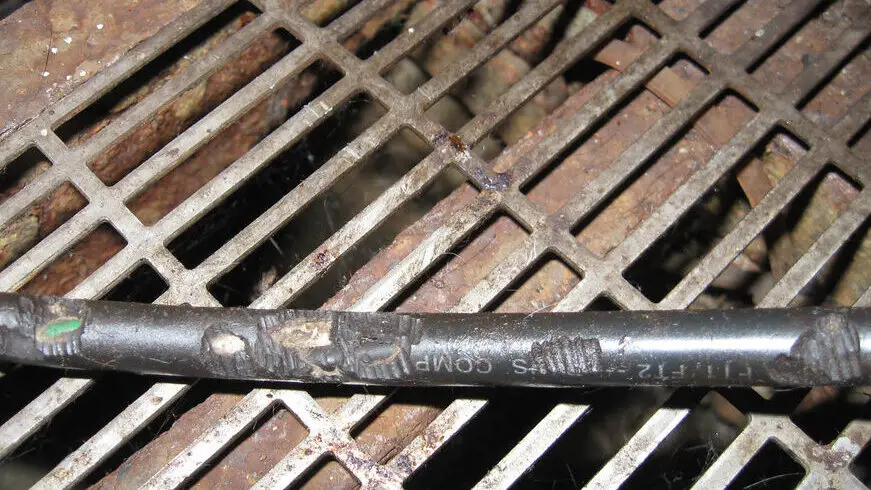Mice and rats have a notorious reputation for chewing on wire insulation, creating significant pest issues in homes and businesses. Their gnawing can lead to dangerous electrical malfunctions, prompting many to turn to professional pest control companies for solutions. Understanding the reasons behind this behavior is crucial for effective pest prevention and avoiding the risk that these potential pests pose.
The Dangers of Rodents Chewing on Wires
When the weather turns colder, rats and mice chewing on wire insulation become a prevalent concern. These rodents chew on the wires to prevent their teeth from continuously growing. Unfortunately, this behavior can lead to electrical fires, as damaged wire insulation can ignite from a spark or heat buildup, highlighting the necessity of addressing this issue promptly.
House Fires and Electrical Failures
Rodents, particularly mice and rats, are a major cause of house fires, as indicated by the National Fire Protection Association. Their persistent gnawing on electrical wiring can strip the insulation, creating a significant risk of short circuits and subsequent fires. Homeowners must stay vigilant to prevent such dangers.
In addition to fire risks, rodent activity can lead to electrical failures. These disruptions not only cause inconvenience but also signify deeper issues within the walls that can escalate if not addressed. The National Fire Protection Association emphasizes the importance of regular inspections to safeguard against these risks.
The Hidden Costs of Rodent Electrical Damage
Electrical damage caused by rodents extends beyond immediate repair costs. The National Fire Protection Association notes that the aftermath of rodent-induced fires or electrical malfunctions often involves expensive restoration of home systems and potential increases in insurance premiums.
Furthermore, the hidden costs associated with downtime, loss of personal belongings, and emotional distress can be substantial. Homeowners are advised to take proactive steps to mitigate these risks and protect their investments and well-being.

Identifying Signs of Rodent Electrical Damage
Recognizing the telltale signs of rodent electrical damage is key to taking preventive measures against potential rodents. The National Fire Protection Association advises homeowners to listen for the sound of rodents trying to grind their teeth and to inspect for chewed wires, which are often indicative of electrical damage within the home.
Checking Your Home for Chewed Wires
Unexpected electrical outages could point to rodent damage. Homeowners should routinely check for chewed wiring, particularly in areas less frequented, as these might be the first signs of a larger issue. Electrical failures due to damage to wiring not only disrupt daily life but can also be precursors to more severe problems.
Visibility of damaged wires often comes too late, and thus, regular inspections are vital. Locating and addressing any signs of rodent damage early can prevent extensive electrical failures and ensure the safety of your home.
Regular Electrical System Evaluations
Protect your home’s electrical system with consistent evaluations. Rodents are compelled to chew to keep their teeth from growing too long, and loose wiring or components in junction boxes and electrical panels can be tempting targets. Regular checks can detect and correct these vulnerabilities before rodents cause harm.
Professional inspections can identify potential trouble spots like loose wiring and ensure that junction boxes and electrical panels are secure. This is an essential step in maintaining a safe electrical system and preventing the costly consequences of rodent damage.
Effective Strategies to Prevent Mice from Chewing Wires
Have you noticed signs of rodents or experiencing electrical problems? The reasons why mice and rats chew on the wires are numerous, but understanding that these rodents are nocturnal can help in planning effective prevention strategies. A thorough rodent inspection is the first step in addressing any electrical issues before they escalate.
Sealing Entry Points to Deny Access
Effective rodent control begins with denying access. Sealing entry points with materials like spray foam insulation or masonry repair can prevent mice and rats from getting inside and reaching your home’s wiring. This proactive approach is a cornerstone of rodent control and can provide long-term relief from these persistent pests.
Regularly inspecting and repairing any breaches in your home’s exterior can be an effective deterrent. By closing off potential entryways, you reduce the chance of rodent invaders making their way to your electrical wiring and causing damage.
Reducing Rodent Attraction Factors
Limiting factors that attract rodents to your home is another critical component of preventing damage to your home’s wiring. Ensuring that food sources are secured and reducing clutter can make your home less inviting to these pests. Additionally, using materials like plastic or steel to encase wiring can deter rodents from gnawing on them.
Implementing a Rodent Deterrence Plan
Creating barriers at entry points and safeguarding your home’s wiring with materials like plastic or steel can form an effective rodent deterrence plan. Proactive measures are necessary to ensure that your home remains unattractive to rodent invaders who can cause extensive damage.
Maintaining cleanliness and order, securely storing food, and routinely inspecting for signs of rodent activity are essential elements of a comprehensive deterrence plan that can spare homeowners from costly repairs and safety hazards.

A Step-by-Step Guide to Repairing Rodent Damage
After addressing the issue of electrical wiring damaged by rodent invaders, the next step is repair. Natural deterrents like peppermint oil can add a layer of protection while securing the home’s exterior ensures that rodents can squeeze through no more. A methodical approach is essential for effective repair and prevention.
Swift Repairs are Crucial
Quick action is essential when dealing with rodent damage to electrical systems. Prompt repairs not only restore functionality but also reduce the risk of further damage and potential safety hazards. It’s important to address any signs of damage immediately to maintain the integrity of your home’s electrical infrastructure.
Financial Options for Unexpected Repairs
Unexpected repairs due to rodent damage can be costly, but homeowners have several financial options. Insurance coverage, home warranties, and professional service plans can offer relief from the burden of unplanned expenses. It’s wise to explore these options in advance to ensure swift and stress-free resolution should the need arise.
Navigating the Challenge: Final Thoughts on Mice and Wires
Mice and other rodents pose a unique challenge as they gnaw on electrical wires, driven by teeth that never stop growing. This incessant need to chew can lead to flickering lights, electrical malfunctions, and in severe cases, catastrophic house fires. The signs of their presence, such as rodent droppings and chewed places in the attic or walls, can help homeowners recognize and address rodent issues promptly. It is imperative to develop a plan that encompasses sealing, cleaning, and monitoring to mitigate these risks. Successfully dealing with mice requires understanding why wires are attractive to rodents and taking proactive measures. Pests can contaminate areas with their droppings and cause extensive damage, which can be costly to repair. By implementing strategic deterrents and maintaining vigilance, homeowners can navigate the challenge of keeping their electrical systems safe from the gnawing habits of these small yet destructive creatures.

